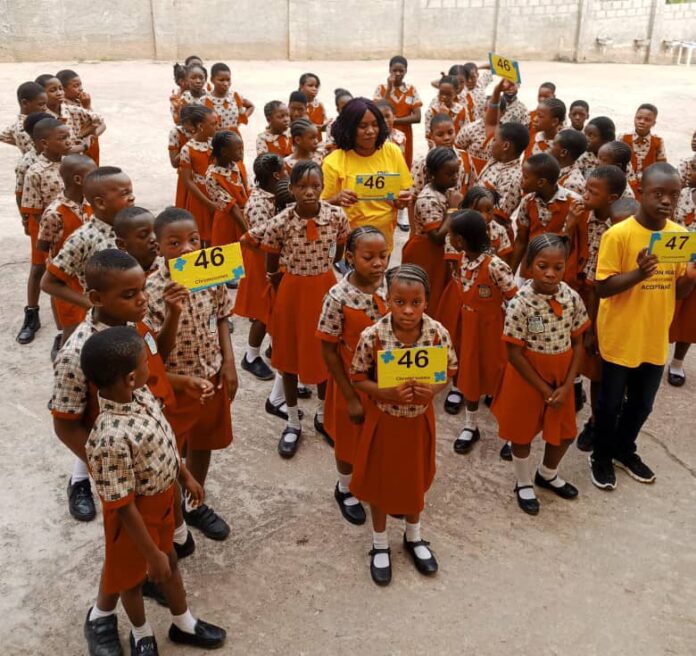The Foundation decided to sensitize children on Down Syndrome and inclusion, because they are the biggest drivers of inclusion.
By Emma Ogbuehi
Ahead of the 2022 World Down Syndrome Day, a special needs children education and well-being advocacy organization, has described true inclusion as the unconditional acceptance of all people, especially special people, such as those living with Down Syndrome and other learning disabilities.
This is in line with the theme of this year’s World Down Syndrome Day, which is: ‘What does inclusion mean?’
World Down Syndrome Day is a day set aside to celebrate people living with Down Syndrome the world over. It is a global awareness/sensitization day officially observed by the United Nations (UN) since 2012.
This year’s event comes up on Monday, March 21, 2022.
As part of the sensitization programme for this year’s event, an advocacy team from Ugo Edward-Dibiana Down Syndrome Foundation, on Friday, March 17, 2022, visited some Abuja-based primary schools to educate the pupils about Down Syndrome and the imperative of embracing inclusion for special needs children in the society, especially in the educational environments.
READ ALSO:
Seun Majasan Foundation offers palliatives to the Vulnerable
According to the co-founder of the Foundation, Mrs. Duma Edward-Dibiana, who led the team to both the Kingdom Heritage Model School, Life Camp, Abuja and LEA Primary School, Mabushi, Abuja, the Foundation decided to sensitize children on Down Syndrome and inclusion, because “Children are the biggest drivers of inclusion. They have pure hearts and do not discriminate unless where they are negatively influenced by adults.”
She explained that Down Syndrome is not a disease but a congenital genetic disorder as a result of having an extra chromosome.
She said: “Every human being is born with 46 chromosome. 23 from the father and 23 from the mother and they come in pairs. But for people living with DS have three (3) copies of the 21st chromosome, instead of the usual two (2) copies. So instead of the normal 46, they have 47, which is an anomaly. And that anomaly manifests in diverse forms that impact on them in ways that affect their development abilities, both physically and mentally.”
Mrs Edward-Dibiana lamented that for many children living with Down Syndrome and special educational needs, inclusion is often experienced as a painful form of exclusion. She said that ideally, people with such peculiarities, should be encouraged and accepted to learn alongside their peers and given every opportunity to form meaningful friendships devoid of adult negative interference, adding that true inclusion means unconditional acceptance.
She said further that inclusive education drives the much needed “enlightenment home because it allows people with Down Syndrome and other special needs to mingle and socialize with other children and importantly, showcase their strengths and weaknesses.
“Their peers see them for who they really are and make efforts to unconditionally accept or reject them as they would do to other children without these challenges. To foster inclusion, every member of the school community is implored to model behaviors that respect and accept individual differences.”
On what government could do to bring about inclusion in schools, she said: “I urge government at all levels and stakeholders to truly and sincerely embrace that pattern of education that modifies/adjusts classroom practices meant for the ‘normal’ child to accommodate the child with Down Syndrome. That pattern of education that doesn’t discriminate, but rather makes room for people living with Down Syndrome and other special needs.
“That pattern of education that teaches children from a tender age about equality, diversity and respect for others. That pattern of education that assists these people to meet their peculiarities and maximize their potentials. Inclusion enhances self-belief and confidence in these special people.” She said







